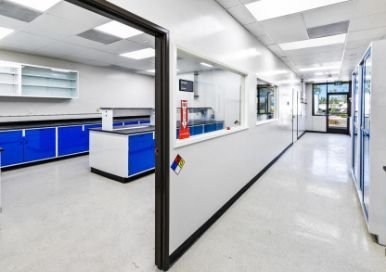
9565 Heinrich Hertz Dr
San Diego, CAManufacturing and Distribution Facility

In commercial real estate, due diligence is a critical process that helps mitigate risk and ensures that investors make informed decisions. It involves a comprehensive review of all aspects of a property before finalizing any transaction.
This guide breaks down the key components of a commercial real estate due diligence checklist, comparing and contrasting various approaches to help you navigate the process effectively.
A thorough title examination is the cornerstone of any commercial real estate due diligence checklist. This involves reviewing the property’s title history to ensure there are no outstanding liens, encumbrances, or legal disputes that could affect ownership.
Zoning laws and land use regulations can significantly impact the value and functionality of a property. Verifying that the property complies with local zoning laws is essential to avoid future legal complications. Some companies focus more on how zoning affects current property usage, while others delve into potential future uses based on zoning changes.
Thoroughly evaluating the property’s financials is important to assess its profitability. This involves analyzing historical income statements and expenses to understand the property’s financial health.
Considering projected income and market trends is vital to gaining a comprehensive view of the property’s long-term viability. Balancing past performance with future potential provides a clearer picture of the investment’s overall strength.
Understanding the details of existing leases is crucial, as it directly affects the property’s income potential. A thorough lease review should include rent rolls, tenant obligations, and lease expiration dates.
Different approaches in checklists might prioritize tenant stability over lease terms, or vice versa, depending on the investment strategy. Tailoring this review to your specific needs can reveal both opportunities and potential risks.
Manufacturing and Distribution Facility Westridge Technology Park. Life Sciences / Biotech Building In MiramarIn Case You Need an Office Space

9565 Heinrich Hertz Dr
San Diego, CA

6555 Nancy Ridge Drive
San Diego, CA
Conducting a detailed inspection of the property’s physical condition is a must. This involves assessing everything from structural integrity to mechanical systems. It is recommended to engage specialists, such as structural engineers or environmental consultants, to ensure all aspects of the property are thoroughly evaluated.
The depth of this inspection can vary depending on the property type and location, but it’s always better to be comprehensive.
Environmental due diligence is another critical aspect of the checklist. A Phase I Environmental Site Assessment (ESA) helps identify potential contamination issues that could lead to costly remediation efforts.
The importance of this step often gets downplayed, especially in areas with a low risk of contamination. However, overlooking environmental risks can lead to significant financial and legal liabilities in the future.
Ensuring the property adheres to all local, state, and federal regulations is crucial. This process involves verifying that the necessary permits, licenses, and building codes are in place and up-to-date. Taking a proactive approach by anticipating and preparing for future legal requirements can significantly reduce potential delays and costs.
Checking for ongoing or potential litigation involving the property or its owner is a step that shouldn’t be overlooked. Legal disputes can complicate transactions and reduce a property’s value. Different checklists might place varying levels of importance on this, but it’s always smart to be thorough.
A comprehensive market analysis helps you understand the property’s position within its competitive landscape. This includes evaluating local market trends, occupancy rates, and comparable property sales. Some may focus more on macroeconomic factors, while others prioritize local market conditions. A well-rounded market analysis can inform pricing strategies and investment decisions.
Investigating future development plans in the area is essential for understanding potential impacts on the property’s value. Whether it’s new infrastructure projects or nearby commercial developments, these factors can significantly influence the property’s long-term prospects.
A well-executed commercial real estate due diligence checklist is vital for identifying potential risks and opportunities in any transaction. By comparing and contrasting various checklist items, you can tailor your due diligence process to meet your specific needs and ensure a successful investment.
At IPG, our team of experts is here to guide you through this complex process, helping you navigate the intricacies of commercial real estate with confidence and precision.